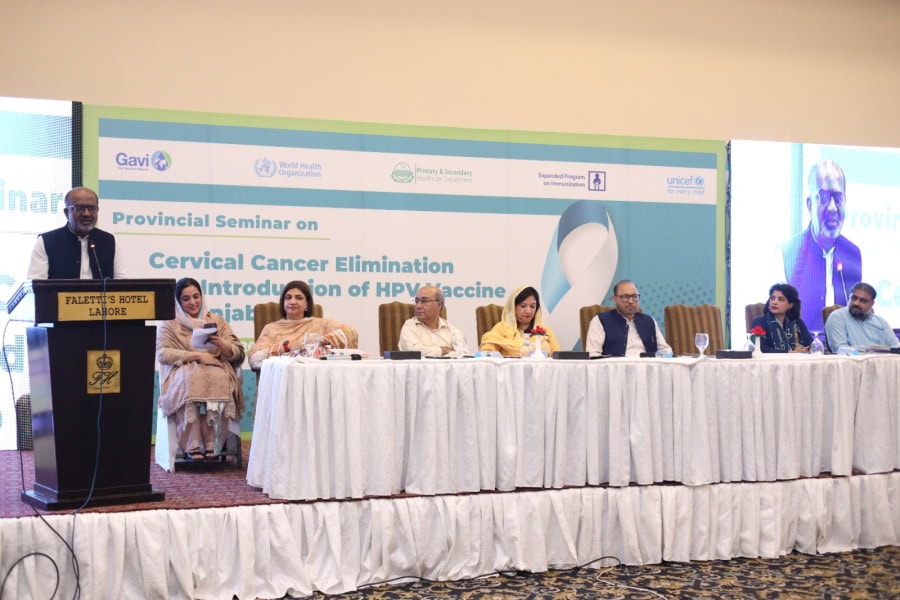LAHORE – Punjab has started preparations for the introduction of vaccine in its routine immunization to control cervical cancer related to Human Papilloma Virus.
Speaking at a seminar on HPV organized by the Expanded Program on Immunization (EPI) with UNICEF support at a local hotel here, Director General Health Services Punjab Dr. Ilyas Gondal said that the vaccine would be introduced in the second half of 2025 following formal approval from the National Inter Agency Coordination Committee (NICC) and the National Immunization Technical Advisory Group (NITAG).
Human Papillomavirus is leading cause of cervical cancer worldwide and the third most common cancer among women in Pakistan with over 73.8 million women at risk.
Director EPI Dr. Mukhtar Ahmed said that vaccine will be administered to girls between 9 to 14 years of age. He said the vaccine will be introduced in two-phased manner, first in the form of a campaign followed by its inclusion in routine EPI vaccines. He said introduction of a vaccine requires complete package of province-wide trainings on injection administration, cold chain, reporting tools, soft wares and IEC material.
“It is a long and tedious process and preparations have started. The vaccine can reduce the incidence of HPV related cervical cancer by up to 88%,” he said.
International Ambassador of HPV Society Dr. Naureen Zafar said that cancer is incurable and the most cases are asymptomatic. She said it takes 10 to 12 years for the cancer to develop. She said the cancer mostly hits low and middle income countries the human papilloma virus accounts for a number of other cancers as well.
Vice Principal SIMS Professor Tayyaba Waseem said that cervical cancer was the only vaccine preventable cancer. “Loss of young mothers is devastating for families. We can save these lives through vaccination,” she said.
Head of WHO Sub office Punjab Dr. Jamshaid Ahmed said that 141 countries in the world have included the vaccine in their national immunization programs. “Targets for 2030 have been set in the Global Strategy for Elimination of Cervical Cancer. There is a great deal to learn from countries that have already introduced the vaccine.”









